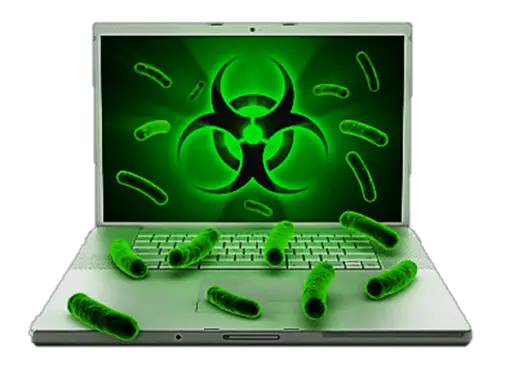Though it’s not rocket science, sometimes it’s rather hard to tell whether or not your computer has a virus. Often, some viruses lurk in the depths of your computer’s hardware, their only plan to bog your computer down, while others have a much more malicious agenda.
Some software viruses corrupt or erase data from your computer and others find a way in through your email or instant messaging. A very common way to get a virus is by downloading things from the internet. It is critical to anyone with a computer to make sure they have the proper antivirus tools. Let’s talk about the threats of certain viruses and ways to get rid of them or avoid them all together.
Kinds of Viruses and Their Dangers
Though we already talked a little bit about how you get a computer virus, let’s go a little more in depth. A virus is a computer program that spreads by infecting a computer’s hard drive or router network. Once it’s in, it copies itself. Over and over. They range from harmless to very malignant.
Standard viruses are primarily obtained through email messages or web pages, but the viruses can get a lot worse. A worm is a virus that spreads even without the help of a person. They spread from device to device and take up a lot of bandwidth and memory. If a computer stops responding, it’s usually because of a worm. Worms also subject your computer to hackers.
A Trojan Horse is a computer program hiding a virus. Often they come as a tag-along when you download something from the internet. These are dangerous because their intent is to do damage to your computer.
There are many different types of viruses, but all manifest themselves differently. It’s not as important to know what all the different viruses are, as it is to safeguard against them. If you’re curious on the most destructive computer viruses out there, read up on it, otherwise here are some routine things you could be doing to make sure you’re not the next victim of a virus.
Prevention
Prevention can be rather simple. To keep your computer safe against all kinds of viruses, do routine maintenance checkups. First thing is to install an antivirus software. This will limit the amount of viruses able to affect your computer from the start.
Other advice is to not open up unknown attachments in emails, to install a firewall, use pop-up blockers in your browser, keep your computer updated, and take advantage of User Account Control. these are the pop-ups that require your permission when making changes to your computer.
By doing these things, you be a lot more secure and feel good about using your computer with no fear. If you have other questions, just find someone knowledgeable to ask. It’s also a good idea to take your computer in once a year to get it cleared of all possible things that have snuck in and bogged it down over time.
